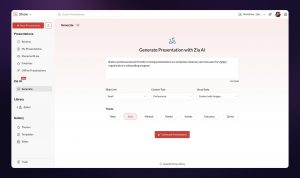Chuck Schaeffer, Vantive Media´s CEO and Blogger, published an article about Why CRM Fails. He names the top reasons why CRM project implementation fails. Below, we have summarized The Top Reasons CRM Software Fails according to his article:
- Poor Objectives: A lack of clear and measurable goals, questionable completion and fictitious ROI. It’s also helpful to recognize software features and functions are not business objectives.
- Poor CRM Strategy: CRM isn’t a software application, it’s a business strategy. You need to understand where you are starting from, where you want to go and the shortest route to get there.
- Scope Creep: certain scope items were completely missed in the planning and estimating process. So we must actively manage scope in a disciplined way and at a detailed level.
- User Adoption: resistance to change is a given in most CRM implementations. When that resistance fails to be quickly and properly addressed, and spreads from a few challengers to defiance by groups, you can quickly pass a tipping point whereby recovery is lost and the CRM system is destined for failure.
- Poor Business Process Design: Without business process improvement, you’re just creating another place to enter data. Automation replaces manual activities, speeds business process cycles and incurs fewer errors. Business process automation is the #1 contributing factor to increased employee productivity.
- Missing Executive Sponsorship: Missing, inactive or inadequate executive sponsorship closely correlates to CRM failure. Staff and management take their queues from the executive team so it is imperative the executives deliver visible, vocal and active project sponsorship.
- Lack of Systemic, Predictable Project Execution: Agile and Scrum have replaced waterfall implementation methods and become the de facto CRM deployment methodology for good reasons. However, it’s been my experience few organizations do Scrum correctly. Instead, they use pieces and parts largely based on convenience, ignore some of the more challenging rules and then wonder why things didn’t work out.
- Lack of Continuous Process Improvement: Your company’s quest to acquire more customers, increase customer share and improve customer retention never ends, so neither should your enabling technology.
Additionally, here at InterConnecta, with more than 650 implementations for different verticals in different regions, we have identified a few tips that increases the success of your CRM Implementation project:
- Find a Champion: for all our CRM implementation projects, we request our customers to assign a Project Manager to work with our Project Manager to work together in the implementation. Typically, he/she is the champion but in some cases, we are able to identify a key user that is willing to help test the different processes implemented and act as an ambassador with his/her team to get requests not covered under the scope. This helps in the user adoption significantly.
- Training and Documentation: training is normally performed at the end of each implementation, but in order to get users involved in the process of implementation, we recommend to have progress updates that includes a user guide up to that point of implementation. This user guide, combined with a training session, helps the user identify pain points not covered thus far and would need to be considered before continuing with the implementation.
- After-Implementation Support: providing different channels for the CRM users to connect with a CRM specialist after the implementation is complete, is crucial for CRM project success. From chat boxes, phone support or email communication, users need to be able to get all their questions answered and get the support needed in a timely manner.
If you have any other tips you want to share, feel free to shoot us and email and we will make sure we add it to the discussion. We wish you success in your CRM implementation project!



